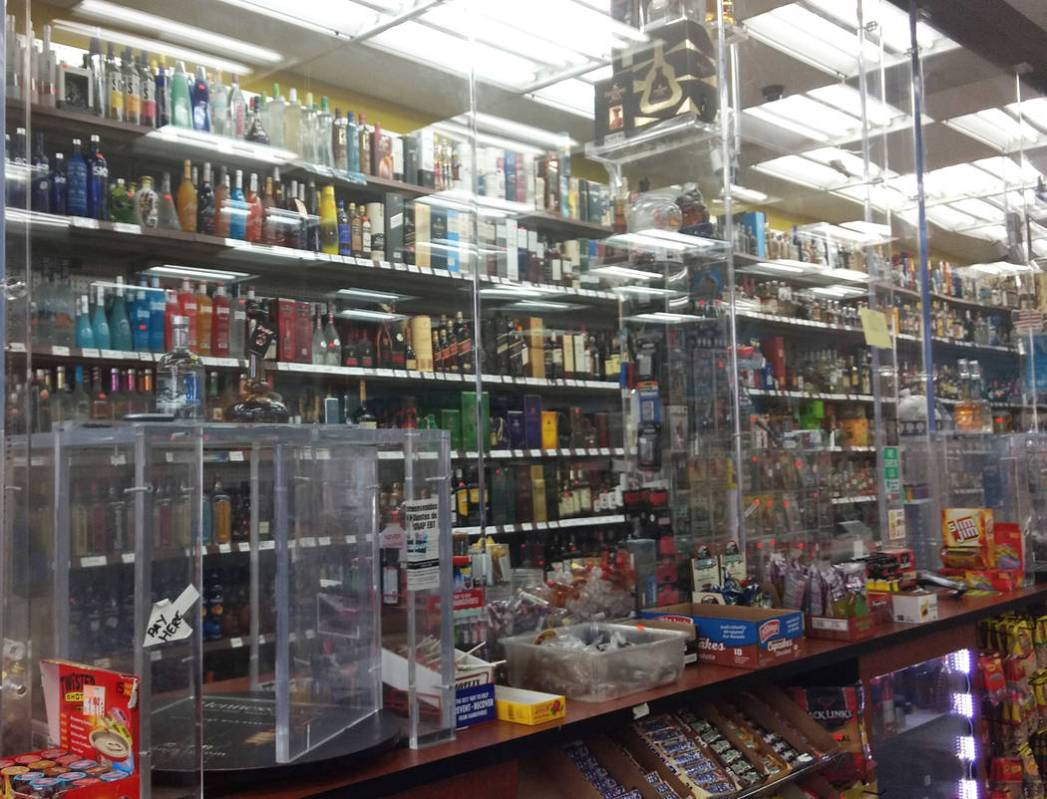Las Vegas’ liquor law changes seen as too little, too late

Martin Dean Dupalo has owned a home in the east valley since 1980 and said he isn’t opposed to growth, but he has grown increasingly frustrated with the direction it has taken. He partly blames a substance that’s found in spades in Sin City.
“As more liquor stores and other places people could get packaged liquor came to the neighborhood, I started seeing more drunk drivers,” Dupalo said. “They leave literal scars in my neighborhood, in the form of broken walls and smashed cars that drunk drivers have crashed into.”
He sees the proliferation of locations to buy alcohol as part of a multipronged assault on the neighborhood, which includes densely packed payday-loan locations, damaged and missing sidewalks and graffiti. Dupalo has contacted city officials, pointing out that in many places in the east valley, convenience stores have become de facto liquor stores.
“I’ve gone in and talked to the owners of some of the stores where there are a lot of calls to Metro regarding drunk and disorderly and other issues,” said District E Clark County Commissioner Chris Giunchigliani. “Usually they see there’s a problem and we stop them from doing things like breakouts, where they break up a six-pack and sell individual cans. Unfortunately, a lot of these problems are in the poorest areas of our city.”
Liquor stores face more stringent licensing requirements and higher costs than convenience stores do. Dupalo said he thinks many locations are skirting the process by applying for one while operating as the other. The Las Vegas City Council has passed legislation in an attempt to address the issue.
“There were multiple liquor (law) changes from 2014 through 2015,” said city spokesman Jace Radke. “Many dealt with Fremont Street. However, one bill adopted on Dec. 5, 2015, applied to all locations in the city.”
That ordinance prevents new convenience stores and gift shops from selling hard liquor. New ones can only sell beer or wine. It also requires that package-liquor establishments — those that sell liquor in sealed containers — be at least 1,000 feet from any other package-liquor location, including taverns and sexually oriented businesses. New grocery stores selling alcohol, beer or wine can’t be within 400 feet of a church, school or child-care facility.
The operative word is “new.”
“We have grandfathered in locations, so for the time being they are still out there,” Radke said.
Dupalo blames what he called a lack of planning that started a long time ago.
“I’m not opposed to business — or alcohol, for that matter — but how many places selling alcohol is the right number? Is it 20? Is it 40? Sixty? Eighty? All I know for sure is that the number that is here right now is overwhelming for the neighborhood’s general health,” he said.
Contact F. Andrew Taylor at ataylor@viewnews.com or 702-380-4532. Follow @FAndrewTPress on Twitter.